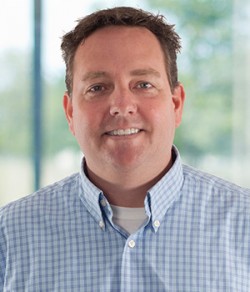
Bill Self received his Bachelor’s degree and Ph.D. in Microbiology from the University of Florida (’93, ’98). His graduate research focused on the role of molybdenum in the transcriptional regulation of genes encoding components of the formate hydrogenlyase as well as nitrate reductase using Escherichia coli as a model. His post-doctoral studies at the National Institutes of Health (NIH) concentrated on biochemical and spectroscopic analysis of selenium dependent molybdenum hydroxylases, including the discovery of a new selenoenzyme, purine hydroxylase from Clostridium purinolyticum. After five years at the NIH, Dr. Self established his own research laboratory upon arriving at the University of Central Florida in the fall of 2003. Over the past twelve years the laboratory has continued studies of selenoenzymes from clostridia, especially Clostridium difficile, metalloproteins from other microbes, and also expanded to study newly identified catalytic antioxidant nanomaterials (cerium oxide nanoparticles) in a collaboration with Dr. Sudipta Seal (NSTC). He continues to build an interdisciplinary research program in these areas. He and his wife of 20 years, Marianne, also spend quite a bit of time raising their four sons, Zachary, Ryan, Matthew and Michael.
In the area of STEM education, Bill has an interest in improving student success, with a particular interest in transfer student’s populations in life science. He has collaborations with faculty and administrators at Valencia College, Education Testing Service (ETS) and the Orange County Public Schools and is working to develop federally funded programs with these partners to improve life science education. He is also serving as Provost Faculty Fellow for 2015-2016. As part of this role he is serving as a leader on university–wide initiatives in education, such as the Foundations of Excellence Transfer focus initiative in collaboration with the John N. Gardner Institute for Excellence in Undergraduate Education. He is also serving on the leadership team on an initiative at UCF to integrate predictive analytics from the Education Advisory Board (EAB) into the fabric of UCF’s interactions between students, faculty, advisors and staff. Combined this work lies within his overall interest in improving student success at UCF.